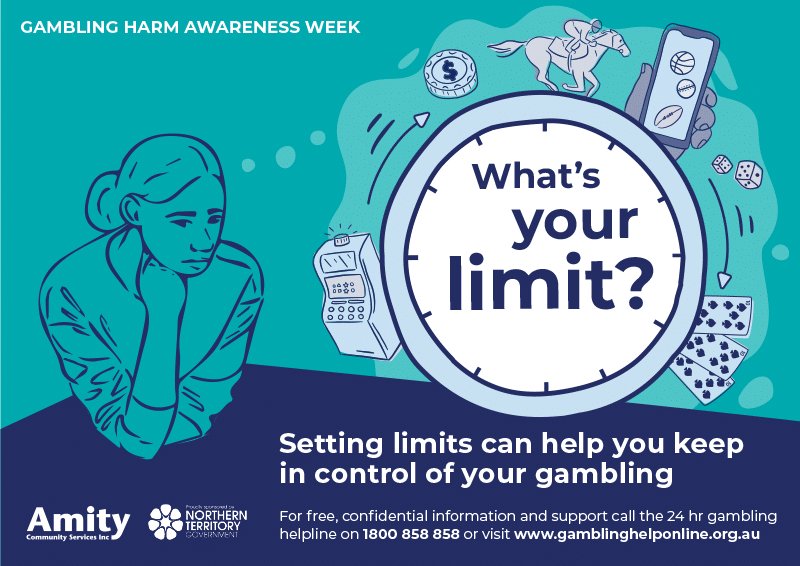Our Work – Current
Gambling Harm Minimisation and Education Program
Amity works in the gambling area focusing on providing projects and services based on evidence to reduce harms relating to gambling. The range of projects and services enables Amity to work with people, families and communities across the Territory.
2023 Responsible Gambling Campaign

Some of the ways we work in this program include
counselling services for people and concerned others experiencing problems with gambling. Amity’s business hours telephone number is (08) 8944 6565
managing the 24hr Gambling Helpline – 1800 858 858
providing information and education on gambling harms and self-help strategies
building capacity throughout the Northern Territory through community education and development
creating health promotion resources and public health campaigns
